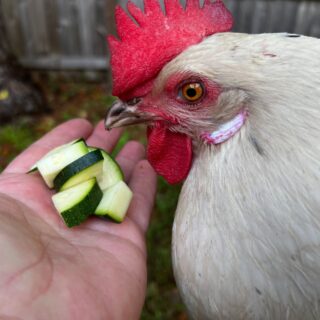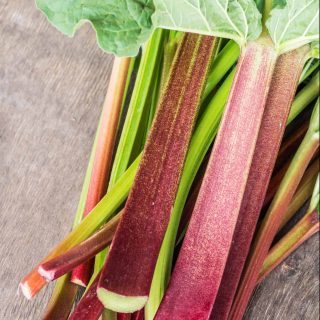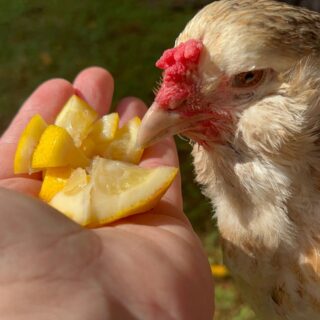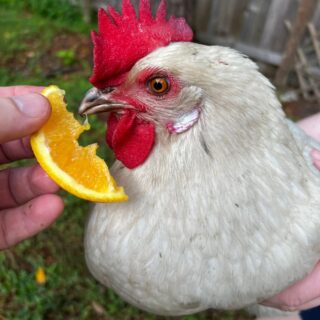Yes, chickens can eat blueberries. And, they love them due to their sweet flavor. As a bonus, blueberries are healthy snack for your flock, chock full of vitamins and other nutrients.
Keep reading to get all the details on how to feed them blueberries, benefits of doing so and more.
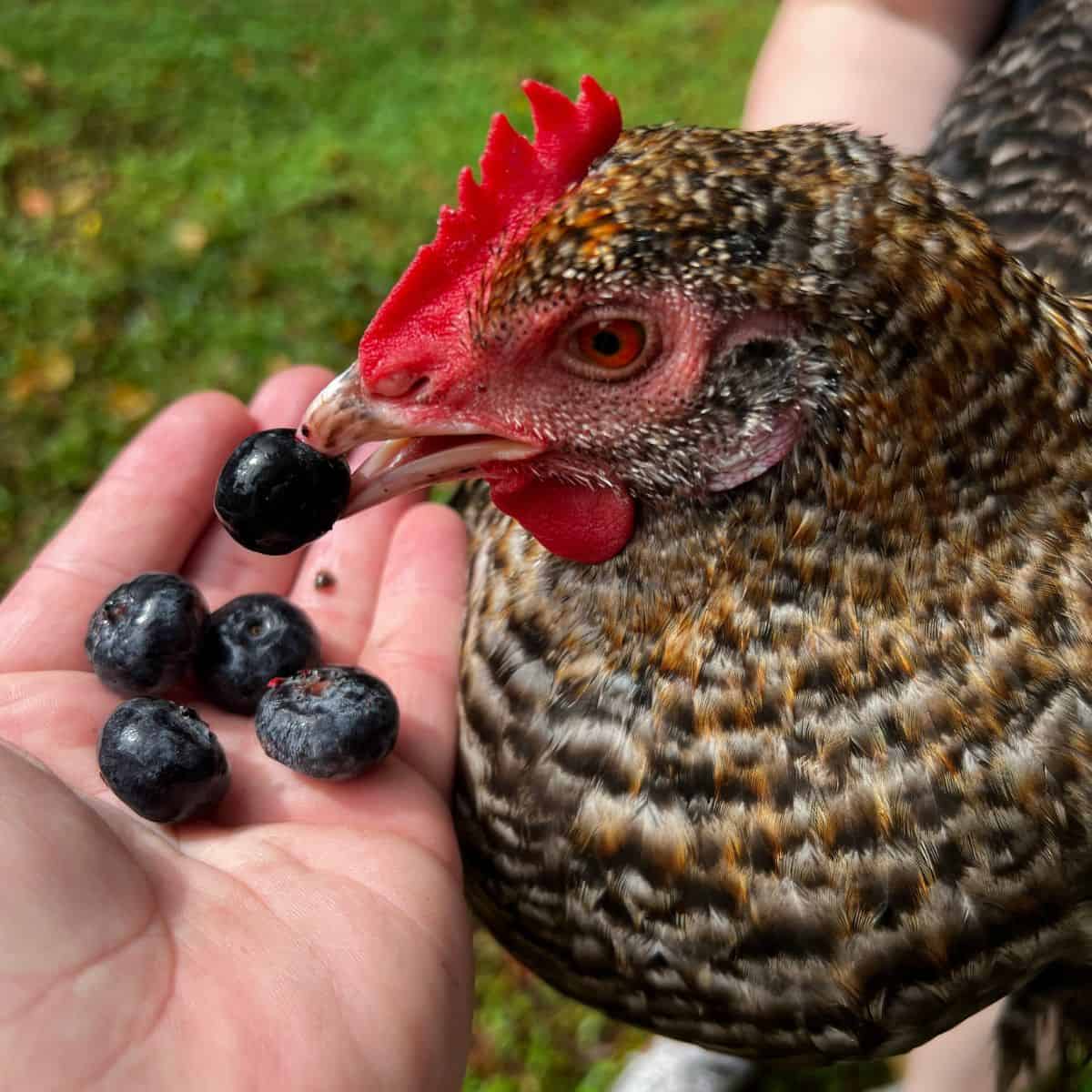
Jump to:
Are Blueberries Safe for Chickens?
Blueberries are very safe for your chickens. Just make sure to feed them in moderation.
We use a 90/10 rule which simply says that the primary, or 90%, dietary source for your chickens should be a quality chicken feed and whatever they can free range. The other 10% can be various other treats.
Just like when chickens eat pears or when chickens eat nectarines or any other sweet fruit treats, you want to be sure that you maintain regular health checks on your chickens to ensure they are staying in tip tip shape.
Generally, treats and snacks should not be an everyday occurrence. We like to use our treats as a special event and stick to 3 or 4 times a week.
You can also switch it up and give them blueberries one day, feed your chickens peanuts on another, and feed chickens papaya or feed chickens mango on the other days. Or whatever treats are your flocks favorite.
Need some help keeping your chickens health and care taken care of? Check out the Organized Chicken Keeper for an easy to follow system.
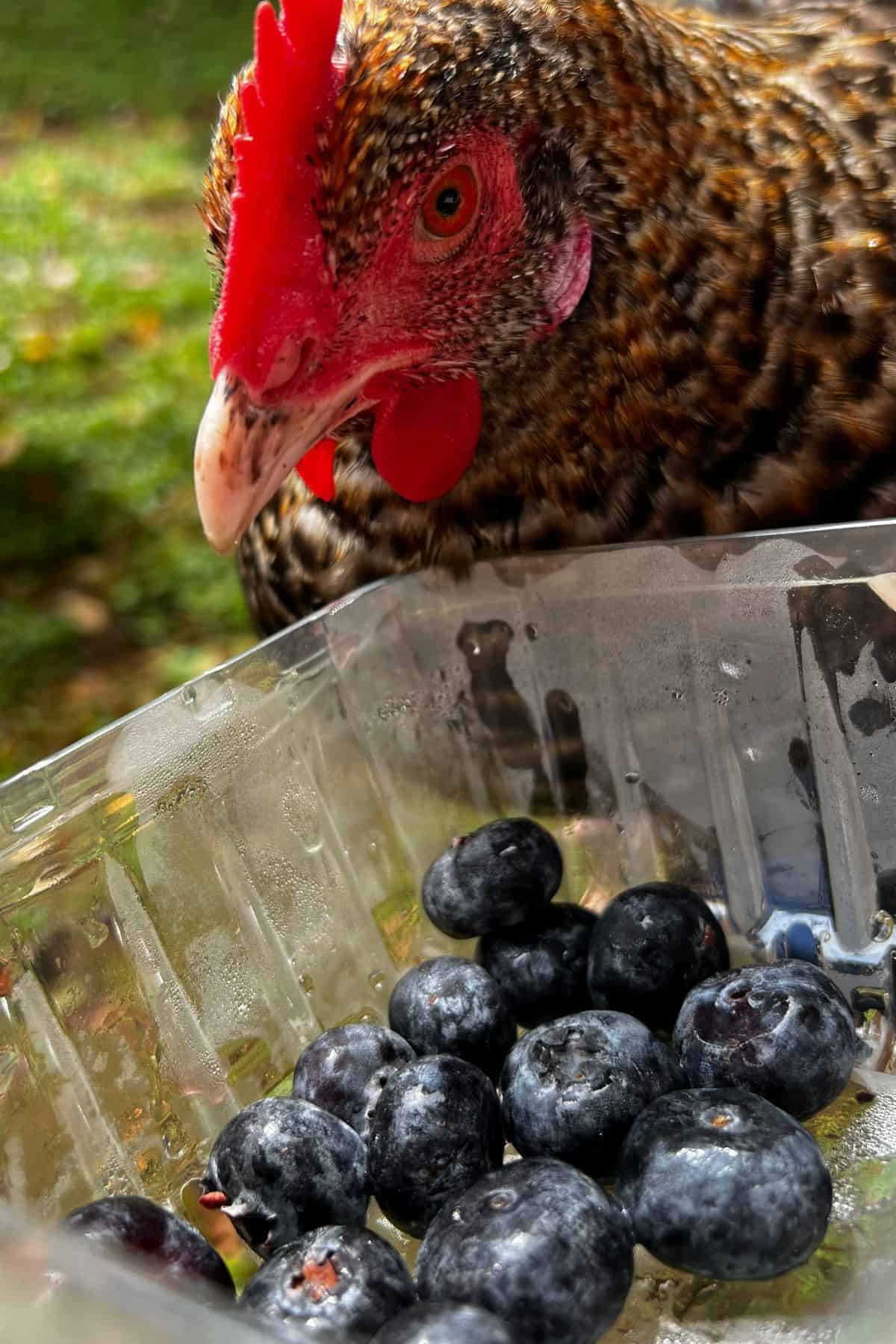
How Do You Feed Chickens Blueberries?
Blueberries are really easy to feed to your chickens.
- Give them a good wash to remove any pesticides.
- Scatter them about for your chickens.
- Try to provide enough and scatter them well enough that each chicken can get to a few without getting into fights.
You can freeze blueberries to give them a cool summer treat. It's fun to string them up like a toy of chickens with other fruits chickens can enjoy. A few examples are: Chickens can eat raspberries, chickens can eat blackberries, chickens can eat cherries, chickens can eat peaches, and chickens can eat apples.
Benefits of Blueberries
Blueberries are rich in a number of different vitamins and nutrients such as antioxidants and Vitamin C (just to name a few). These help keep your chickens clucking along and healthy.
Here's a look at some of the main nutrients blueberries provide:
- Vitamin C - helps with overall egg laying and production as well as maintaining cellular and immune health.
- Antioxidants - helps with providing support for oxidative stress, free radicals, inflammation and more. Chickens can eat raspberries for even more antioxidants.
- Fiber - helps with overall gut and GI health as well as absorbing nutrients. Chickens can eat strawberries if they need more fiber.
- Vitamin K - helps with vision, blood clotting, bone metabolism and more. Chickens can eat pears for even more of this vitamin.
Feeding Chickens Blueberries FAQs
No, you should not feed your chickens moldy or rotten blueberries. If you wouldn't eat them, your chickens should not either.
If you need more help with taking care of your chickens, check out The Organized Chicken Keeper for a complete system for managing their health through keeping their supplies stocked and coop clean.

